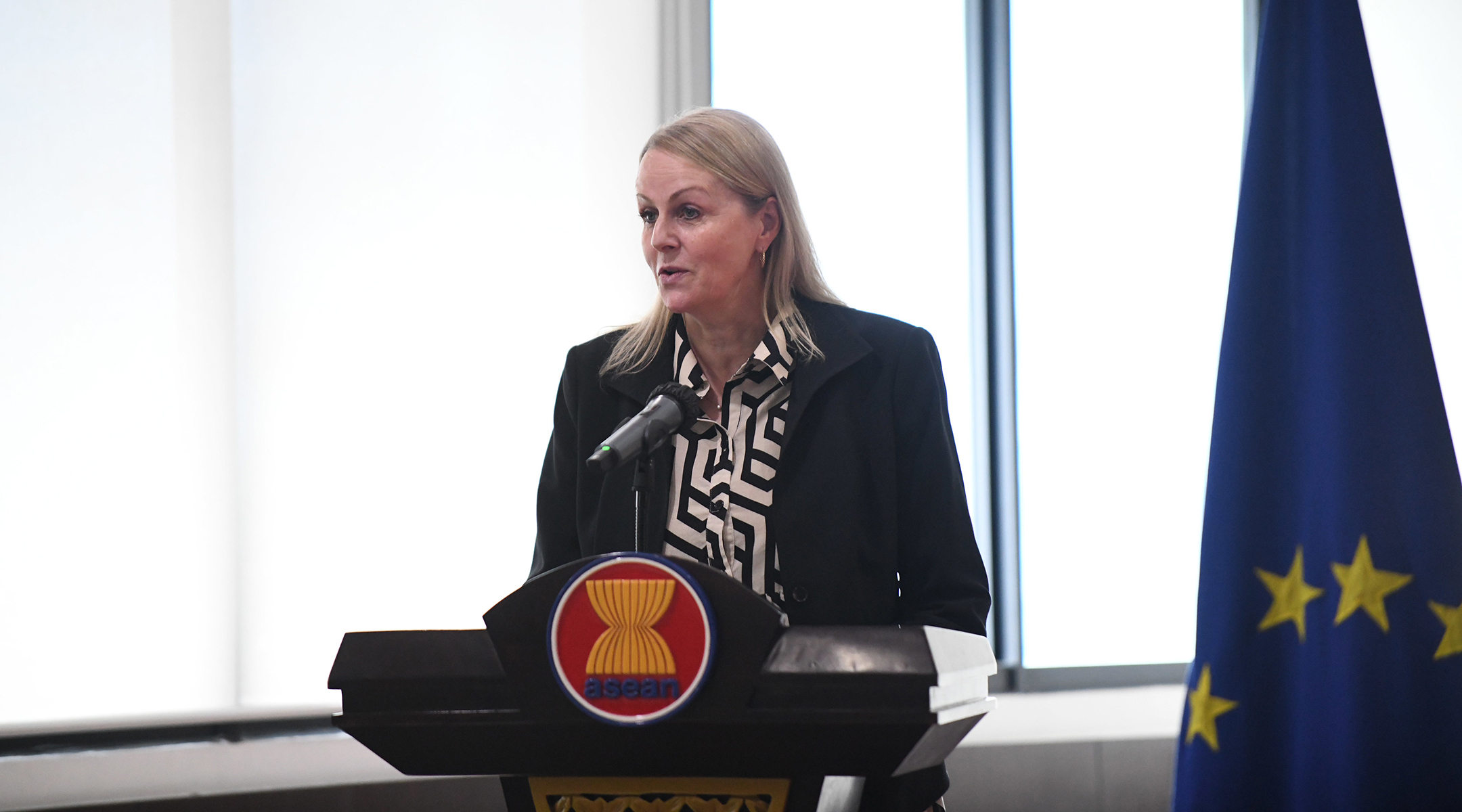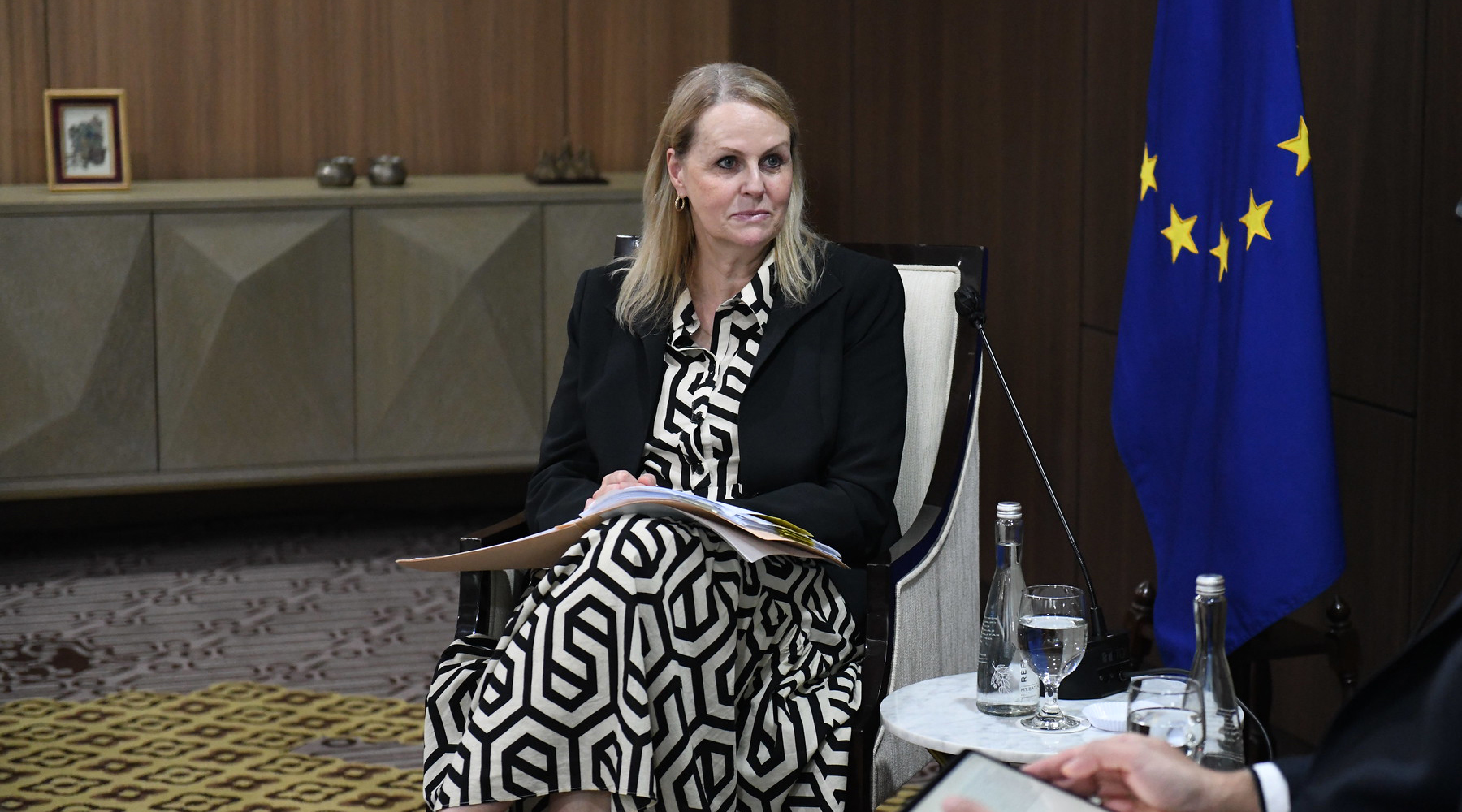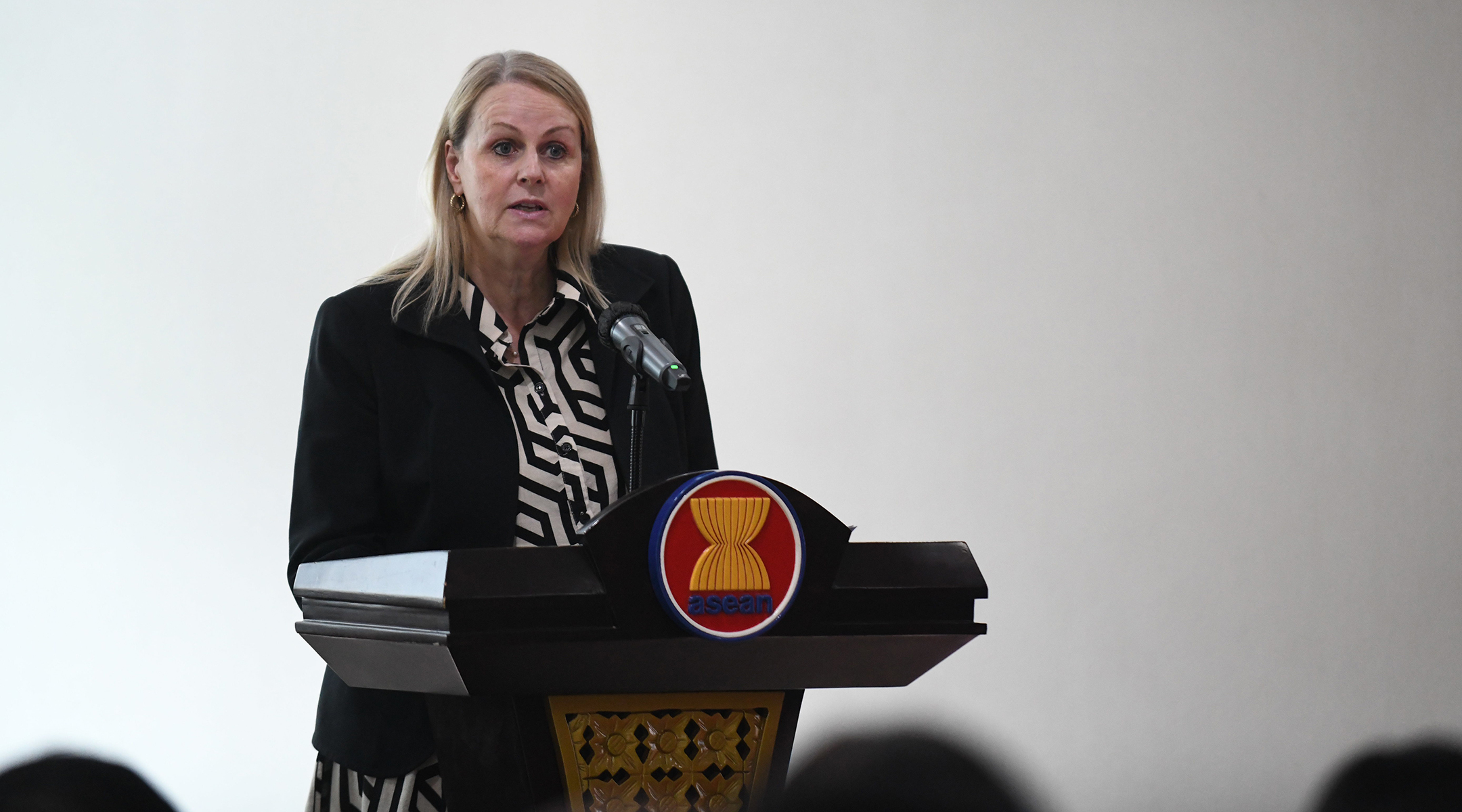During the Ukraine Green Recovery Conference, organized in Vilnius by the European Commission, an Ukrinform correspondent spoke with the Director General of the DG Environment, Florika Fink-Hooijer, who dwelled on the main problems on the path of sustainable and ecological development of Ukraine, the projects run by the European Commission to support green reconstruction, the importance of the actual implementation of reforms in the field of environmental protection within the framework of the European integration of Ukraine, and the impact that the Russian war against Ukraine had on the steps taken in Europe toward green transformation.
- The Ukraine Green Recovery Conference brought together a variety of actors, which is perfect for networking toward green reconstruction. What are the main challenges that you are seeing at the moment toward making the significant push to sustainable development in Ukraine, of course given the circumstances of the ongoing war?
- Let me start on the different actors that we were very happy they could join and come together, meaning municipalities from Ukraine and from Europe, having experience under LIFE and other projects, as well as the business community. Bringing these two parts together, from both sides, together is what we really aim for.
I think one important issue is obviously awareness rising. The other one is bringing communities together so that they themselves start discussing, especially with a business part, how to come to some agreements or at least start connections, which is equally important. It always takes time after all. For municipalities it was about showing certain techniques or expertise, but also about making them aware about the funding that is available and how can they use it. But for us, it was equally important to hear what other real challenges are and what really cannot be demanded immediately and also whether there is an acceptance to plan for the future certain circular or green approaches. So i think this all has to be partly realistic, but also partly about concrete, technical, and financial support to be given.

- I have this feeling that some representatives of smaller communities are a bit uncertain about pitching their projects for grants, for example, within the LIFE program, simply because they have zero experience in this field and suggest they won’t be able to deliver a proper presentation to succeed with the pitch. Is the Commission planning to support Ukrainian NGOs and companies applying under the LIFE programme?
- National Contact Point(s) are called to provide help to the applicants at national level (e.g. organising proposal drafting sessions). It is important to start contacting them to help their capacity building: they can contact CINEA and get the replies to the questions.
They can also contact and team up with National Contact Points of other countries.
Next year a call for proposals for capacity building projects is expected to be launched for helping National Contact Points to boost the number and the quality of proposals submitted. The Commission has presented a proposal to the LIFE Committee members and the decision should be taken at the beginning of next year. This call for proposals would be aimed to help particularly NCPs from newly associated countries but the responsible authorities should prepare and submit proposals that are good enough.
General info:
- LIFE general Info days: ex. the 2023 ones and for Clean Energy Transition
- LIFE information session for Ukraine
- LIFE project database
- LIFE - Support for applicants (europa.eu)
- Partner search tools
- Can you dwell a little bit into the first LIFE project signed for Ukraine just recently?
- The Ukraine Green Recovery Conference saw the announcement of a new EUR 1 million LIFE project for Ukraine that is ready to start. The project will help Ukraine to move closer to EU nature legislation and support the alignment of the Emerald network of protected sites with the EU Natura 2000 network. The project will be implemented in Ukraine, by four partners from Ukraine and Czechia.
In particular, the project aims to:
- to bring the UA nature legislation and practice into compliance with the EU norms;
- to advance the institutional reform in the nature conservation sector in UA;
- to establish a roadmap for improving the Emerald network and transformation to N2000;
- to identify species and habitats requiring additional protection measures;
- to improve the management and monitoring of Emerald sites;
- to strengthen partnership between UA and CZ
- intensify the general public engagement and in particular youth in environmental actions.
- What biggest challenges do you see in Ukraine’s waste management?
- First of all, I would like to point out progress made by the Ministry of Environment and Parliament in waste management legislation and certain types of alignment. When we normally talk about better waste management, it's very much about municipal waste going away from landfills, incinerators being shut down, that is, managing waste in a more sustainable way. This is all part of our legislation requirements to member states. Now, when we talk about the debris, this is construction waste, or “destruction” waste, if I may say so, which unfortunately one has to also analyze. This waste cannot just be used in rebuilding again because of some legacy chemicals in destroyed buildings, like asbestos and others. There are certain techniques on how to extract and use that, and I know there are experts who are working on that, but I think the most important thing is to be aware that one has to analyze the debris before it is used in rebuilding because of the enormous health hazards that we could have in the long run – even on the stage of dismantling.
Partly the problem is the debris from the war but partly it’s also the legacy pollution in the soil. But of that we’re also aware and we have also had experience in dealing with so we could share it.
So the first thing to be done is quality mapping, which is undertaken by UNEP and partly by the European Union. There are satellite images that are used to this end but also the cadasters where municipalities will have to countercheck, what the building was like before it was destroyed, when it was built. Because normally you would know that before a certain year, asbestos had been widely used. That’s hopefully if you have this data at all. I realize that this is a big challenge but I also know that Ukraine is very well aware of that problem, too.

- The European Commission has recognized progress in laying into the new environmental legislation the required core. But what is the most important next step in your opinion?
- There are many steps, not just some one big step, and you have to be realistic on which one could be taken first, but even with the respect to the legislation that is now being put in place, it's equally important to put in place the control and enforcement structures, which is not only linked to the environmental legislation. It is also linked to all other kinds of legislation under the acquis and other areas Ukraine has adopted. In the end, it’s all about the implementation.
Also, when we talk about environment, what we consider extremely important is the environmental impact assessments that would have to be done when you start any big infrastructure site or project. And I know that Ukraine has already put in place the legislation for an environmental impact assessment, which is quite similar to to our standards. But the question is, will it be applied? Will it be really used? I do understand that for certain areas, people might say they have to make a derogation, for example, if it’s a combat zone or if it’s an area where the destruction is on such a scale that at this moment the assessment cannot be applied, but you have other areas of the country that are not that much affected, where certainly an impact assessment could and should take place.
- Talking about the enlargement, do the EU stakeholders see Ukraine’s huge size more as a challenge or more as a benefit, including in terms of complementing to the EU industrial capacity, hopefully in a greener way given the goals to build back greener and build back better?
- I think that's a very good question and it's a question that indeed has to be at least partly addressed already. Now, because the big important issue is how to make sure that Ukraine has an industrial base that gives Ukraine the revenues, jobs, and certain autonomy that you will need not just as being a partner or entering the internal market.
And the the question which more competent people than me would look at is what type of industry base has a future? What small and medium size industry should be encouraged and stimulated to do because you need it at all levels. Ultimately, municipalities need that revenue as well. So the industrial potential of Ukraine is what many are now looking at and analyzing. Of course, this data will also give an incentive for industries from outside, the investors to come in.
As we have experienced from the previous enlargements involving countries coming from the other side of the Iron Curtain but not coming from war, certain industries most likely will have no long-term future but will also not be able to be phased out immediately. This would be simply impossible. But that's why we are very much looking at these green and recycling possibilities because that could be also a very long-term sustainable way. By the way, in Europe, we don’t have the same type of say, plastic recycling enterprises at a large scale in each member state.
But that is a discussion that Ukraine has to do on its own but, hopefully, based on the analysis and mapping done by economic institutions or international bodies who would offer the baseline for a decision to be made. And that’s also important in view of in which direction to go and how to use some of the money under the Ukraine Facility.

- Is the Commission receiving from EU member states and assessing data on environmental damage that resulted from the Russian war in Ukraine?
- The Commission is in direct communication with MS neighboring Ukraine about any environmental damage in border areas. More importantly, the Commission leads an effort of coordination of various sources among its services and agencies to support Ukraine in assessing and recording environmental damage. The Commission also works closely with UN bodies to deliver authoritative reports, like the Rapid Damage and Needs Assessment (RDNA) reports which are the most comprehensive and authoritative reports so far for the evaluation of war damages in Ukraine. This tracking effort is indispensable to mitigate short term risks, but also to ensure proper accountability and a full restoration after war operations.
- How did the full-scale war in Ukraine affect EU environmental policy in general and what steps had to be adjusted if any?
- Neither the pandemic, nor the war have changed the path towards the Green Deal and towards climate neutrality but rather enforced it. The war has clrearly accelerated the rollout of the renewables. I mean, without the war, many would not have understood the dependency from Russian fossil fuels or gas. And therefore, this acceleration in the role of renewables actually helped us to be get further on track toward climate neutrality as Europe because that was like a wake up call.
Ievgen Matiushenko, Vilnius
Photo: ASEAN Secretariat
